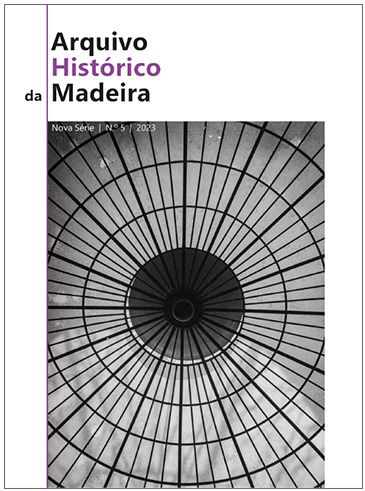“New Madeira”? Notes and Considerations for the Study of the History of Madeiran Colonization in the Huíla Highlands (Angola), 1884-1975
Abstract
This article analyzes the history of Madeiran colonization in the Huíla Plateau, in Southern Angola, in the period between 1884 and 1975. More specifically, it seeks to reflect on the historical evolution of the white colonial nucleus created by Madeirans in the Huíla Highlands, in particular in the town of Lubango, taking into account economic, social and political aspects, embodied in the formation of a community strongly rooted in African soil, whose identity, interests and horizons were fully situated in Africa. In this respect, the Madeiran settlers not only revealed a unique ability to adapt to the African reality, but also shaped it, having transplanted to the plateau certain features of their original material and spiritual experience on the Island of Madeira, such as the construction of levadas, carrying out an agriculture based on irrigated polyculture or the devotion to Nossa Senhora do Monte, even today, one of the main references of Catholicism in Southern Angola. On the other hand, the good adaptation to the African reality and the isolation suffered by the settlers during the first four decades of settlement created the conditions for the Africanization of this white colonial community, a unique case in the history of Portuguese colonization in Angola. Called chicoronhos, both by blacks and whites, the Madeiran settlers and their descendants were considered, already in the late 1920s, as constituents of a new “white tribe” of Huíla. This Africanization resulted, among other things, in the assumption of a nationalist stance, favorable to the independence of Angola, within the larger framework of Euro-African nationalism and which had its main exponent in the foundation of the Angolan United Front. However, the botched decolonization process and the violence triggered by the Angolan civil war led to the exodus of the majority of the white population from the Huíla plateau in 1975, putting an end to the colonization process of the Huíla Highlands.
Keywords:
Angola; Huíla; Settler Colonialism; Decolonization; Euro-African Nationalism; Madeira.
Downloads
Published
Issue
Section
License
Copyright (c) 2023 Arquivo Histórico da Madeira, Nova Série

This work is licensed under a Creative Commons Attribution-NonCommercial-NoDerivatives 4.0 International License.



